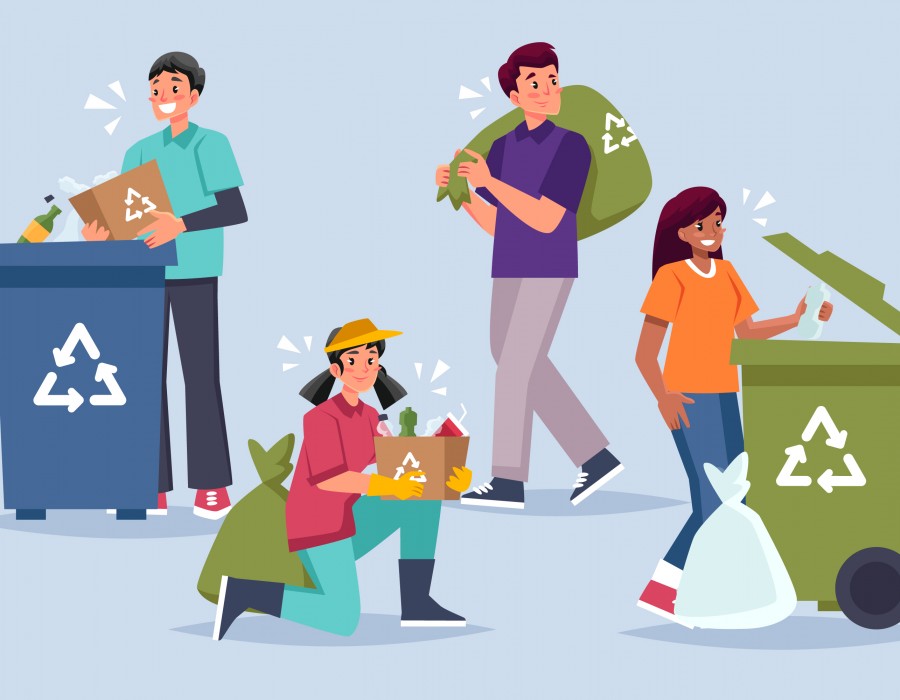Solid waste management in Malaysia is a pressing concern for Malaysian, as much of the population continues to generate large amounts of plastic and other mismanaged materials. Poor solid waste management can lead to environmental degradation and health issues — not only here in Malaysia but globally. To successfully combat this issue, it’s essential that we have effective plans for solid waste management. But what exactly do these plans look like? In this blog post, we'll explore how local governments are handling the challenge of addressing plastic pollution by putting into motion innovative initiatives for dealing with solid waste services. We'll also provide an overview on where improvements need to be made so that future generations don’t suffer from our current practices and patterns related to consumption and disposal.
1. Malaysia is taking steps to reduce the amount of solid waste it produces
Malaysia has recently taken huge strides in solid waste management, aiming to dramatically reduce the amount of solid waste it produces. The country has placed bans on certain single use plastics including plastic shopping bags and straws to mitigate solid waste issues. Additionally, Malaysia has introduced incentive packages encouraging producers, retailers and users to switch from plastic packaging materials to reusable packaging options. Furthermore, the government is also promoting recycling initiatives with residents so that solid wastes can be recycled or reused instead of end up in landfills where it's detrimental to the environment. As these initiatives take hold, Malaysia will be able to make great progress in solid waste production reduction and continue its journey towards a cleaner future.
2. The country plans to recycle 60% of its solid waste by 2020
Malaysia has long been facing a solid waste management crisis. The solid waste generation rate is increasing exponentially and annually, while the amount of solid waste being recycled continues to decline. With this in mind, the country has committed to tackling this issue head-on by setting a goal to recycle 60% of solid waste by 2020. This ambitious plan requires significant policy action on behalf of all levels of government, as well as increased public awareness about the importance of solid waste management. If we can stay abreast with these plans and reduce our production or solid waste, Malaysia has a good chance of reaching its 2020 goals and better managing solid waste in the future.
3. It is also working on reducing the amount of plastic waste it produces
In recent years, solid waste management in Malaysia has become a major concern due to the enormous amount of plastic waste that is produced. To combat this issue, the Malaysian government is taking solid steps to reduce its plastic waste production, such as implementing a solid plastics recycling program and outlawing the usage of single-use plastics in certain locations. By doing this, it aims to reduce the damaging effects of plastic waste on the environment and ensure that solid waste management standards are met. It remains to be seen how successful these efforts will be in curbing plastic pollution, but every effort counts when it comes to creating a cleaner and greener Malaysia.
4. Malaysia is investing in new technologies to help with solid waste management
Malaysians are already used to being in the forefront of emerging technologies, so it shouldn't come as a surprise that they're also leading the way forward when it comes to solid waste management. The Malaysian government is investing heavily in new technologies to ensure solid waste management becomes more efficient and environmentally conscious. From converting solid waste into biomass energy and intervening at household levels with mobile apps, Malaysians have got it covered when it comes to ensuring waste materials don't continue harming the planet -- or their wallets. Bottom line: solid waste management in Malaysia isn't getting ignored.
5. Citizens are being encouraged to do their part by recycling and composting
With solid waste management in Malaysia becoming a growing concern, citizens are being called upon to help reduce the solid waste buildup. Recycling and composting can play a huge role in managing solid waste by turning it into useful resources. By properly sorting and setting aside recyclables and organic waste from their rubbish, citizens can actively contribute to reducing solid waste pollution. Not only does this benefit the environment, but it also gives back to the community—anything recycled or composted can be repurposed as new materials for other activities! Let's all do our part by recycling and composting more!
In conclusion
All in all, with a bit of proper planning and execution, Malaysia can easily develop one of the most efficient solid waste management systems in Southeast Asia. What other steps do you think the Malaysian government should take to improve its rubbish situation? Let us know your thoughts on this issue – we’re always looking for constructive feedback so that we can better serve our readers. And if you want to learn more about wastewater treatment or other ecological solutions for businesses operating in Malaysia, be sure to check out Gargeon’s website. We have a wealth of resources available on topics like these and more.
Last but not least, if you enjoyed reading this post, please spread the word about it on social media! Gratitude for reading!
Special thanks to Whizolosophy.com





Comments